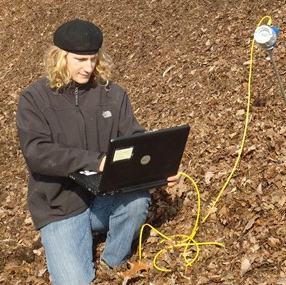On-Farm Assessment of Melon and Cucumber Feedstocks for Downy Mildew and Bacterial Wilt
In this project I will assess resistance to both Bacterial Wilt and Cucurbit Downy Mildew among selected cucumber and muskmelon seedstocks, and move forward with an ongoing project to develop a pickling cucumber that is resistant to both diseases.

 Plant diseases, especially those caused by soil-borne seed infecting pathogens, pose a serious threat to the production of both greenhouse and field crops. Conventional farming operations often use fumigants and chemical seed treatments, which can be harmful to human health and the environment, for controlling seed and seedling pathogens.
Plant diseases, especially those caused by soil-borne seed infecting pathogens, pose a serious threat to the production of both greenhouse and field crops. Conventional farming operations often use fumigants and chemical seed treatments, which can be harmful to human health and the environment, for controlling seed and seedling pathogens.